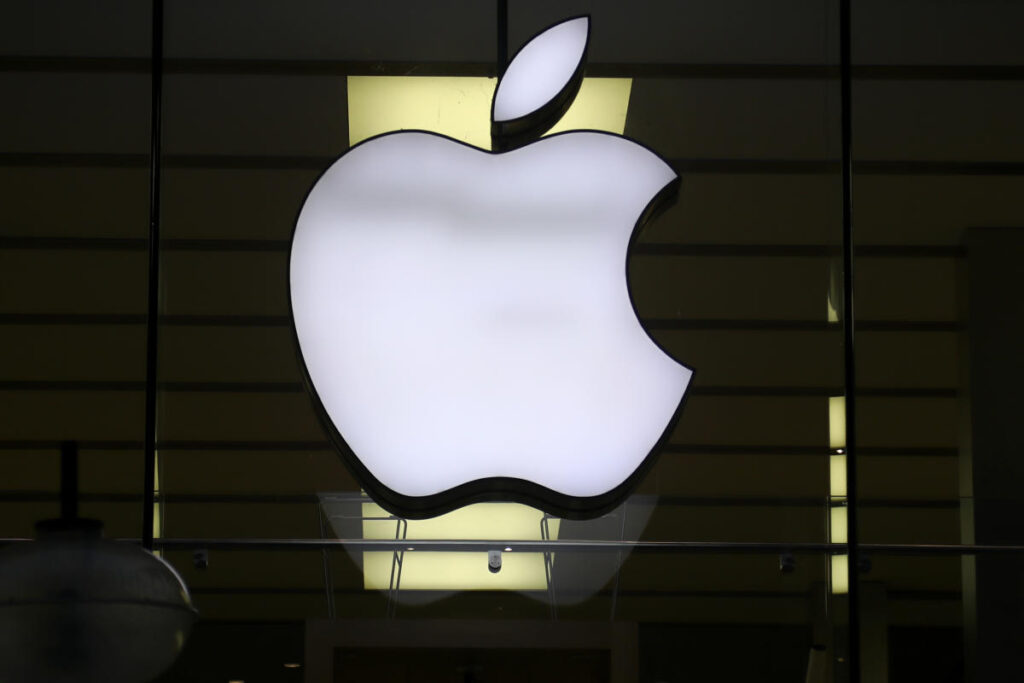LONDON (AP) — European Union regulators on Monday filed the first charges under the bloc's new digital competition rulebook, accusing Apple of preventing app developers from pointing users to cheaper options outside the App Store.
The European Commission said that preliminary findings of an investigation showed that restrictions imposed by the iPhone maker on developers using its mobile App Store violate digital market law across the 27-nation European Union.
The rulebook, also known as the DMA, is a sweeping set of regulations aimed at preventing tech “gatekeepers” from monopolizing digital markets under the threat of heavy fines. The Commission has launched its first set of investigations since it came into force in March, including into whether Apple is doing enough to make it easier for iPhone users to change their web browsers, as well as a separate ongoing investigation into other cases involving Google and Meta.
Apple is under pressure on both sides of the Atlantic to remove some of the competitive barriers over its lucrative iPhone franchise.
The Department of Justice filed a sweeping antitrust lawsuit against Apple this year, accusing the company of illegally monopolizing the smartphone market, excluding competitors, stifling innovation, and keeping prices artificially high. When the lawsuit was filed, Apple had already begun complying with a U.S. court order to allow links to alternative payment systems within its iPhone apps, but the judge expressed dissatisfaction with the company's practices and signaled that changes may be necessary.
App makers like Spotify have long complained that Apple requires subscriptions to be purchased only through its iOS app, allowing the company to take a cut of up to 30%. Those complaints culminated in European regulators fining Apple $2 billion for unfairly favoring its music-streaming service over rivals like Spotify.
Under the DMA's rules, app developers must be allowed to inform customers of cheaper purchasing options and steer them towards those offers.
The European Commission, the EU's executive body, said the App Store rules “restrict app developers from freely directing consumers to alternative sales channels to make available offers and content.”
Apple now has a chance to counter the findings. The European Commission must issue a final decision on Apple's compliance by March 2025. The company could face fines of up to 10% of its global revenue, which could amount to billions of euros, or fines per day.
Tensions over regulations have led Apple to recently voice concerns that it will exclude the European market from a set of new artificial intelligence features coming to iPhones because the company believes new rules in Europe are too onerous.
The story continues
But the European Commission continues to press Apple, as it launches a new investigation into the terms of the contracts the company offers to app developers.
Regulators zeroed in on the 50 euro cents (about 54 cents) “core technology fee” that Apple currently charges developers each time an app is downloaded and installed from outside Apple's App Store. The DMA's provisions pave the way for alternative app stores to offer consumers more choice.
The commission said the new terms were “a condition of accessing some of the new features made possible by the DMA.” Rivals had criticized the fee, saying it would discourage many existing free apps that don't pay the fee from switching over.
“We are concerned that Apple's new business model will make it harder for app developers to operate as an alternative marketplace and reach end users on iOS,” European Competition Commissioner Margrethe Vestager said on social media.
Over the past few months, Apple said it has made several changes to comply with the DMA “in response to feedback from developers and the European Commission.”
“We are confident that our plans comply with the law and estimate that under the new terms we have created, more than 99% of developers will pay the same or lower fees to Apple,” the company said in a statement. “All developers who do business with the App Store in the EU will have the opportunity to take advantage of the features we've introduced, including the ability to direct app users to the web to complete purchases at very competitive rates.”
The company said it would “continue to listen and engage with the committee.”
The EU has been running a similar investigation since 2020 into whether Apple's in-app purchasing system and restrictions violate Brussels' antitrust rules, but that probe has been dropped “to avoid multiple investigations into exactly the same conduct” and will instead focus on an investigation under the DMA, which clearly outlines what Apple must not do, the commission said on Monday.



